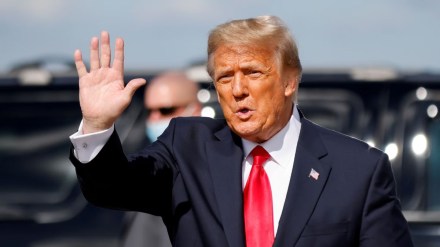President Trump is set to launch his first major tariff strike on Saturday, targeting two of America’s closest neighbors—Mexico and Canada. Both will face a 25% border tax, while China, described as a genuine adversary, will endure a lesser 10% tariff. According to an article in The Wall Street Journal, this brings to mind Bernard Lewis’ famous observation that while it’s risky to be America’s enemy, it’s often fatal to be its friend.
Leaving aside China for a moment, Trump’s justification for the tariffs on his immediate neighbors makes little sense. White House press secretary Karoline Leavitt claims the countries have “enabled illegal drugs to pour into America.” However, drugs have been entering the US for decades, and as long as there’s demand, this will continue. Neither Mexico nor Canada can stop this flow entirely.
The WSJ article also states that it seems drugs may be a convenient excuse, as Trump has expressed a deep preference for tariffs simply for the sake of imposing them. As he said Thursday, “We don’t need the products that they have. We have all the oil you need. We have all the trees you need,” referring to natural resources like oil and timber.
At times, it almost sounds as if Trump believes the US should stop importing anything, advocating for a closed-off economy where America produces everything itself. This concept, known as autarky, is unrealistic in today’s interconnected global economy—and it’s a path America would be wise to avoid.
Consider the US auto industry, which is highly integrated with Canada and Mexico. In 2024, Canada supplied nearly 13% of US auto part imports, and Mexico contributed 42%. Experts note that a vehicle built in North America crosses borders multiple times as components are sourced and added to create a finished product at the lowest cost.
This cross-border trade benefits all parties involved. In 2023, the US auto industry contributed over $809 billion to the economy, or roughly 11.2% of the country’s total manufacturing output, supporting 9.7 million jobs. The US exported $86.2 billion in vehicles and parts to Canada and Mexico in 2023, a 14% increase from 2022, according to the American Automotive Policy Council.
Without this trade, American automakers would struggle to stay competitive. Regional integration is a common manufacturing strategy in countries like Japan, South Korea, and those in Europe, allowing companies to take advantage of a mix of high-skilled and low-cost labor markets.
The result? US industrial capacity in autos has grown significantly alongside an increase in imports. From 1995 to 2019, imports of autos, engines, and parts rose by 169%, while US industrial capacity in these sectors grew by 71%. As Scott Lincicome from the Cato Institute points out, data shows that increased imports directly correspond to higher US production. Many well-paying auto jobs in states like Michigan, Ohio, and Texas depend on this integrated ecosystem of suppliers in Canada and Mexico.
Tariffs will wreak havoc on US-Mexico cross-border agricultural trade as well. In 2024, Mexico supplied 23% of US agricultural imports, while Canada contributed 20%. Due to immigration restrictions in the US, many American farmers have moved their operations to Mexico, and now the country supplies 90% of US avocados. Is Trump now advocating for an avocado-free America?
The article adds that then there’s the risk of retaliation from both countries, which are no strangers to economic pressure tactics. In 2009, after the Obama Administration ended a program allowing Mexican long-haul truckers to enter the US, Mexico retaliated by imposing tariffs on 90 US goods, targeting key Congressional districts. When Trump imposed steel and aluminum tariffs in 2018, Mexico responded by slapping tariffs on steel, pork, cheese, and even bourbon. Canadian Prime Minister Justin Trudeau has promised a dollar-for-dollar response, which could hurt Canada’s smaller economy but raise costs for American consumers.
This tariff war is especially problematic because it contradicts the very trade agreement that Trump negotiated and signed during his first term—the US-Mexico-Canada Agreement (USMCA). Ignoring treaty obligations with close allies undermines the US’s credibility as a negotiating partner. If Trump seeks concessions and pulls back, it could still be framed as a win, but if the trade war continues, it will likely go down as one of the most misguided and avoidable conflicts in economic history.
